Search Results
Search
Filter results
Advanced Filters
Your search returned 883 Solutions
-
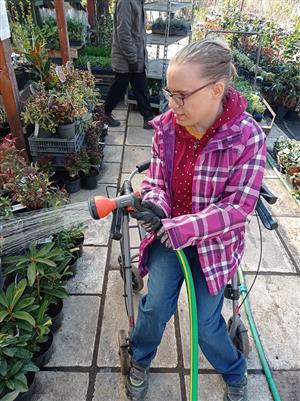
Youth House: Empowering vulnerable young people with disabilities not in education, employment, or training(NEET)
Salva Vita Foundation, Hungary: Empowers NEET youth through activities like animal-assisted therapy and job coaching. From 2018 to 2022, supported over 140 participants, with around 70 finding employment.
Youth House, Hungary -
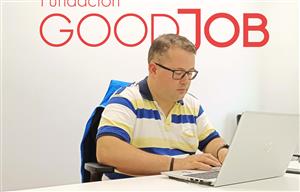
Company- and volunteer-based vocational training model for creating inclusive jobs in the IT sector
Fundación GoodJob's #IMPACT Program: Launched in 2020 for technological and vocational training online for persons with disabilities. By the end of 2022, 518 people participated, achieving an employment rate of over 70%.
#IMPACT, Spain -
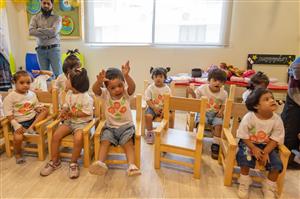
Two programmes that enable young children with Down syndrome to attend mainstream schools
KDSP, Pakistan: Created Early Preschool Experience and Inclusive Education Programs in 2017 for children with Down syndrome. By 2022, the number of children supported in mainstream school had risen to 69.
Education for Individuals with Down syndrome, Pakistan -
Admission quotas and support services for university enrollment
Every year, 20 students with various disabilities are admitted to Universitas Brawijaya. The Centre for Disability Studies and Services provides these students with a number of services to support learning and inclusion, tests and exams are made accessible for a variety of disabilities and a reasonable accommodation is also offered.
Brawijaya University, Center for Disability Studies and Services, Affirmative Admission for Students with Disabilities, Indonesia -
An inclusive post-secondary programme for students with intellectual disabilities
This eight-semester programme allows students with intellectual disabilities to create and study a personalized curriculum. Students of teacher training assist them and take on the role of tutors. The programme supports the preparation of students for the labour market, while the teacher trainees receive credits towards their studies.
Pedagogical College Salzburg, BLuE University Programme, Austria -
Breaking down barriers to scientific knowledge
The project was launched when a group of geologists noticed the lack of knowledge about the earth sciences among society in general. According their motto, "science for everybody," they also began to promote activities for people with learning disabilities, first for Down syndrome students and later for blind and deaf/blind adults.
Science without Barriers Association, Spain -
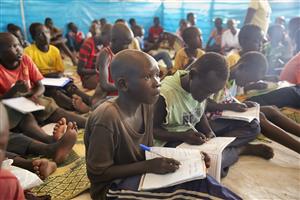
Providing Inclusive Education in camps for internally displaced persons (IDP)
The project provides training for teachers, support for children and their families, and training for relief workers to identify disabilities and make their emergency services more inclusive. Since 2019, Light for the World has been working in partnership with relief agencies and NGOs in three camps in Southern Sudan.
Light for the World Austria, IDP Programme, South Sudan -
Holistic support system from early childhood to vocational training
"Learn for life" provides a range of support mechanisms for children with disabilities at all stages of schooling, from early childhood intervention to vocational training. Local disabled person’s organizations assume leadership of the programme and continue the work after its support is phased out.
DRRA - Disabled Rehabilitation and Research Association, Learn for Life, Bangladesh -
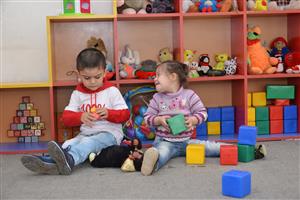
Supporting smooth and inclusive transitions from preschool to primary school
For teachers SMILE offers capacity-building training on Inclusive Education and mentoring visits to assistance. Also the parents are supported to encourage them to actively participate in their children's education. Furthermore, the programme also promotes cooperation between teachers and parents.
Bridge of Hope, SMILE for Children, Armenia -
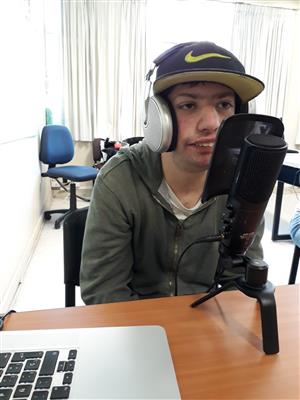
A three-year vocational training programme for students with intellectual disabilities
The "Diploma in Working Skills" is a three-year programme for people with learning difficulties to develop employment skills. Both professional and social competences are taught during the training. The programme takes place on the university campus and students have access to all extracurricular activities on site.
Andres Bello University, Socio-labour training programme in a university setting, Chile
- Page 1
- Page 2
- Page 3
- Page 4
- Page 5
- Page 6
- Page 7
- Page 8
- Page 9
- Page 10
- Page 11
- Page 12
- Page 13
- Page 14
- Page 15
- Page 16
- Page 17
- Page 18
- Page 19
- Page 20
- Page 21
- Page 22
- Page 23
- Page 24
- Page 25
- Page 26
- Page 27
- Page 28
- Page 29
- Page 30
- Page 31
- Page 32
- Page 33
- Page 34
- Page 35
- Page 36
- Page 37
- Page 38
- Page 39
- Page 40
- Page 41
- Page 42
- Page 43
- Page 44
- Page 45
- Page 46
- Page 47
- Page 48
- Page 49
- Page 50
- Page 51
- Page 52
- Page 53
- Page 54
- Page 55
- Page 56
- Page 57
- Page 58
- Page 59
- Page 60
- Page 61
- Page 62
- Page 63
- Page 64
- Page 65
- Page 66
- Page 67
- Page 68
- Page 69
- Page 70
- Page 71
- Page 72
- Page 73
- Page 74
- Page 75
- Page 76
- Page 77
- Page 78
- Page 79
- Page 80
- Page 81
- Page 82
- Page 83
- Page 84
- Page 85
- Page 86
- Page 87
- Page 88
- Page 89